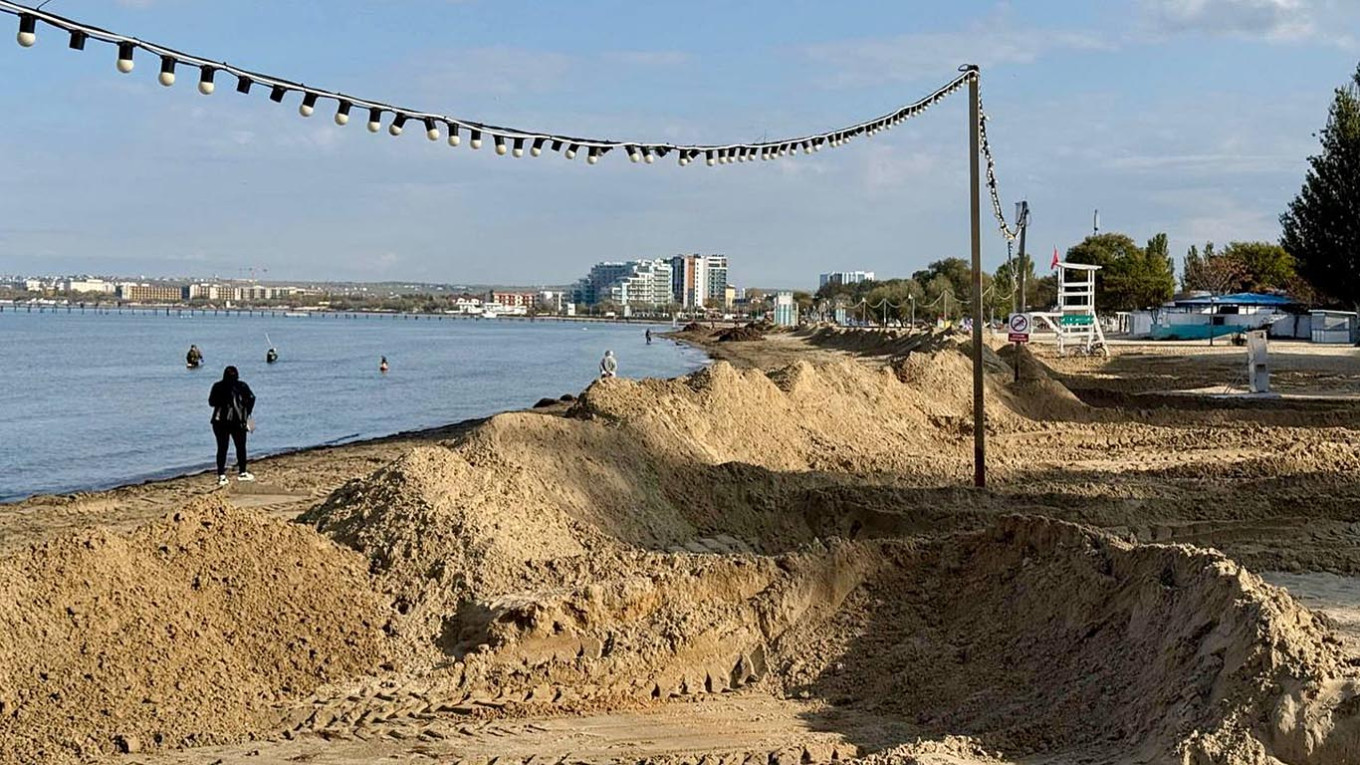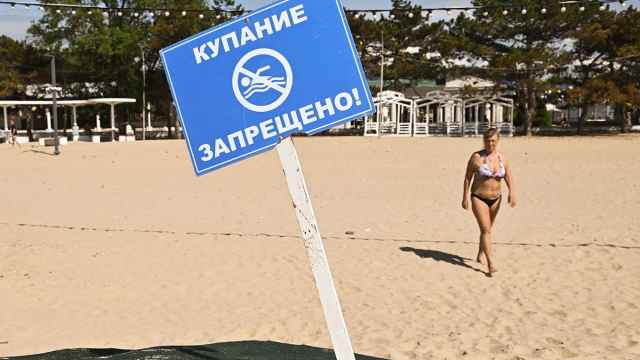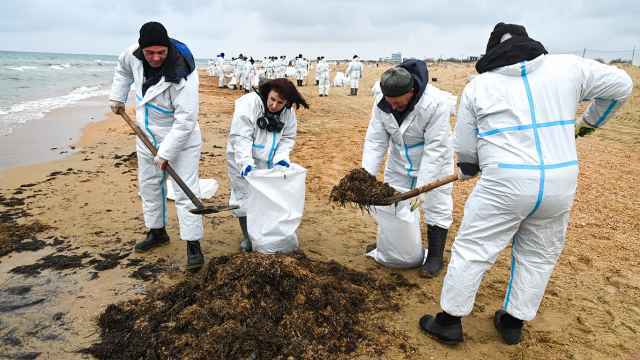A massive oil slick containing around 900 metric tons of fuel oil from the December 2024 sinking of two aging tankers is drifting toward southern Russia’s Krasnodar region, regional officials said Thursday.
Governor Veniamin Kondratyev told the regional legislature that the slick was moving toward the key tourist and port coastlines of Temryuk and Taman, according to a televised meeting cited by the news outlet 7x7.
He called the oil slick’s movement a “second episode” of the December 2024 incident, which Russian authorities estimate spilled around 2,400 metric tons of fuel oil into the Black Sea.
Last month, officials said cleanup crews had finished removing fuel oil residues from the seabed near Anapa. A federal-level emergency remains in effect over the spill, and cleanup efforts continue in other areas.
Satellite images recently captured what appeared to be a large dark slick in open water, which local authorities said could be a concentration of oil products from the spill.
In response, emergency workers have begun rebuilding a 13-kilometer (8 miles) earthen barrier along the beaches of Anapa, one of southern Russia’s most popular resort towns, to prevent oil waste from washing ashore during autumn and winter storms.
The Krasnodar regional emergency headquarters said that 9 kilometers (5.6 miles) of the barrier were completed overnight between Wednesday and Thursday.
Independent Russian environmentalist Georgy Kavanosyan noted earlier in the day that heavy machinery was spotted piling up sand and bags to form makeshift protective walls on Anapa’s beaches.
“Kuban [the Krasnodar region] is preparing for possible new fuel oil discharges,” he wrote on Telegram on Thursday morning.
Environmental experts have warned that the heavy fuel oil released in the 2024 oil spill could linger in the seabed and coastal sediments for years, periodically resurfacing during storms and causing long-term harm to marine ecosystems.
A Message from The Moscow Times:
Dear readers,
We are facing unprecedented challenges. Russia's Prosecutor General's Office has designated The Moscow Times as an "undesirable" organization, criminalizing our work and putting our staff at risk of prosecution. This follows our earlier unjust labeling as a "foreign agent."
These actions are direct attempts to silence independent journalism in Russia. The authorities claim our work "discredits the decisions of the Russian leadership." We see things differently: we strive to provide accurate, unbiased reporting on Russia.
We, the journalists of The Moscow Times, refuse to be silenced. But to continue our work, we need your help.
Your support, no matter how small, makes a world of difference. If you can, please support us monthly starting from just $2. It's quick to set up, and every contribution makes a significant impact.
By supporting The Moscow Times, you're defending open, independent journalism in the face of repression. Thank you for standing with us.
Remind me later.






